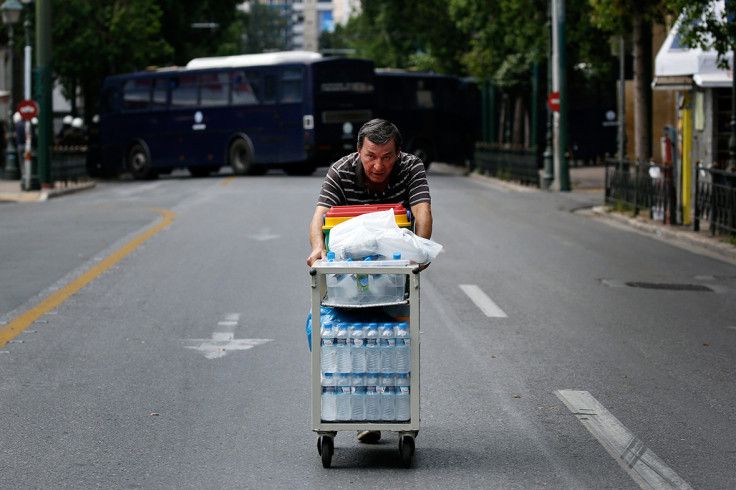Greece grinds to a halt as 3-day general strike takes effect over austerity vote

A three-day general strike is taking place in Athens over pension cuts and further tax increases, as the Greek government brings in more austerity measures. The action brings pressure on Prime Minister Alexis Tsipras, as the latest reforms due to be voted on in parliament on Sunday, 8 May, could bring about the downfall of the government. Tsipras is meeting MPs on Saturday, 7 May, to ensure their support for tomorrow's vote. The prime minister has a small majority, with 153 MPs in a 300-seat parliament.
His office said the measures "fully secure people's pensions, protect the weak, spread the burden of taxes and social security contributions more fairly and safeguard the sustainability of the pension system". But this assurance has failed to stop the industrial action.
The strike has been called by the biggest public and private sector unions, while government departments were closed as civil servants took action. Hospitals were operating on a skeleton staff. In Athens, there was no public transport on Friday as bus, rail, ferry and metro workers did not show up for work.
Farmers are furious at the proposals which they say could increase their social security contributions by up to 300%, and have threatened to ride into the centre of Athens over the weekend on tractors.
The General Confederation of Greek Workers, the largest labour union, said that the measures were "the last nail in the coffin" for workers and pensioners. "They are trying to prove to the Eurogroup that they are good students but they are destroying Greece's social security system," said a spokesman.
The austerity measures have been brought in to raise £4.4bn ($6.35bn), one of the conditions of the £86bn bailout which the Greek government agreed to in 2016 to avoid defaulting. This is the fourth nationwide strike since the left-wing Syriza came to power.
"We're already in debt, struggling to make payments each month," Leandros Karandas, a 31-year-old welder, in a Times report. "These measures will just crush the middle class."
IMF chief Christine Lagarde has threatened to pull out of the Greek bailout, according to the Guardian. In a letter leaked three days before Eurozone finance ministers meet for talks about Greece and its creditors on 9 May, she wrote: "For us to support Greece with a new IMF arrangement, it is essential that the financing and debt relief from Greece's European partners are based on fiscal targets that are realistic because they are supported by credible measures to reach them."
© Copyright IBTimes 2025. All rights reserved.






















